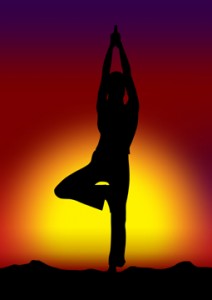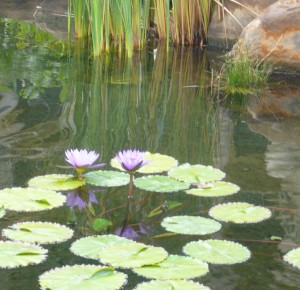 Self-esteem’s a funny thing—a fine balancing act. You’ve got to believe you are wonderful just as you (because you are) AND you’ve got to keep on trying to improve yourself (because you can reach higher and be more).
Self-esteem’s a funny thing—a fine balancing act. You’ve got to believe you are wonderful just as you (because you are) AND you’ve got to keep on trying to improve yourself (because you can reach higher and be more).
That’s perhaps the ultimate razor’s edge of life—balancing confidence with humility. Knowing when to stand up for yourself and when to back down because you have something yet to learn. Taking care not to beat yourself up whenever you make a mistake and, at the same time, not becoming so arrogantly close minded that you shut out the message and the messenger who has been sent to teach you a thing or two about yourself.
As tricky as it can be to balance both sides of the equation of self-esteem, it’s refreshing too. Knowing that self-esteem and humility are necessary partners in your life gives you permission to honor the wonderful in you AND honor what is still waiting to be awakened.
Truth is often a paradox, and that both of these states can coexist within us at the same time—the wonderful and the as-yet-unawakened—is one of life’s greatest truths.
The Zen of Self-Esteem
The Zen masters knew a thing or two about the tricky paradox of self-esteem. The teacher Shunryu Suzuki simply expressed it this way to his students: “All of you are perfect just as you are . . . and you could use a little improvement.” (I don’t know about you, but that makes me smile and I see a playful twinkle in Suzuki’s eyes as he said that.)
I found the same sentiment put another way in a novel I read recently by Michael Koryta, where one of his characters, a high school football coach, talked about the balancing act this way: “The attitude you needed to win football games was a difficult balance. Confidence was crucial; overconfidence killed. Success lived on the blade’s edge between.”
In the game of life, it’s no different, is it?
Some tips for the balancing act:
If your pride (your ego) is hurt, acknowledge that and try this:
- Ask yourself: Would I do better and feel better if I admitted that I have something to learn in this relationship, professional setting, or way of interacting with others?
- If so, what specific advice is this situation trying to teach me so I can become better at navigating situations like this?
- Stand up, close your eyes, spread your arms as wide as you can, and consciously open to the message or lesson waiting for you. What do you hear or see?
If, on the other hand, you feel yourself melting into a puddle from the heat of your own self-criticism, try this:
- Remind yourself that the problem that’s happening right now does not define who you are. The labels people have given you—and the negative names you may call yourself—are not the real you.
- Imagine a line on the floor, the fine line of self-esteem separating self-condemnation on one side and arrogance on the other. Physically take a step to stand right on that line as a way of reinforcing to yourself that you choose to wake up to the inner reality that is you and get back into balance.
Share your ideas here. How do you remind yourself of the paradoxical truth that you are wonderful AND you still have some things to learn?

 Stillness creates strength.
Stillness creates strength. 



